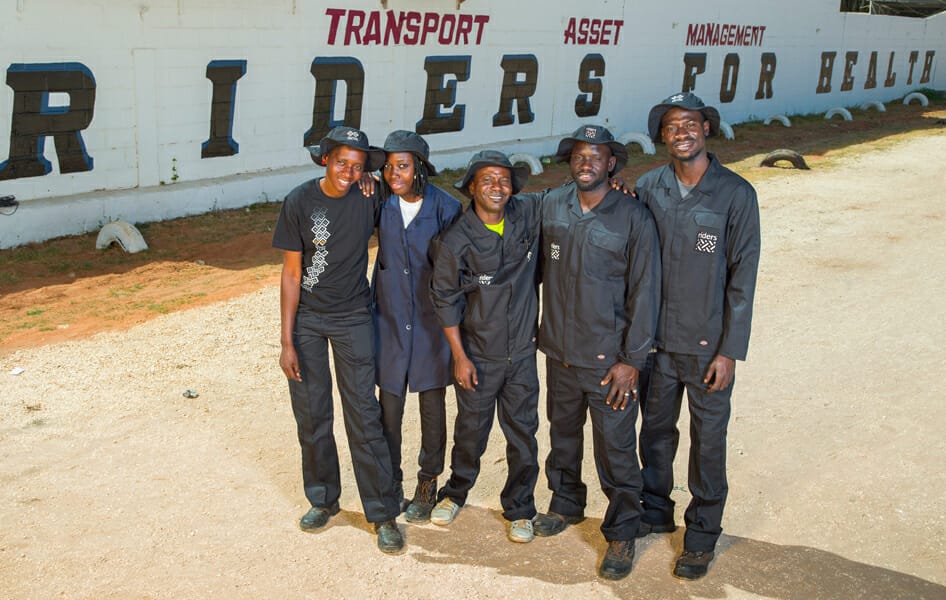How could we have mobile male health professionals visiting villages while female health workers sat in clinics in remote places?
From the outset Riders insisted in our discussions with ministries of health and others that we would train women to ride – not out of political correctness, but as a matter of common-sense practicality.

Jogob Gassama, community health worker, The Gambia
The same question arose in relation to management. And to us this was obvious. Of course we wanted both women and men in leadership positions. Today, more than two-thirds of our programme leaders are women, often women who started in healthcare roles and have developed their careers into transport for healthcare.
Finally another version of the same question jumped on to the agenda. What about our vehicle technicians? Could they be women, and if not, why not? In many countries, not just the ones we operate in, it’s usual to see women in vehicle technician roles. Considered dirty and unfeminine this is possibly the role that was hardest to fill.
Today we have professional female technicians in all our programmes. In The Gambia one of our head vehicle technicians, Binta runs our Basse workshop. She is a top class mechanic and mentor to younger female recruits. She has become a bit of star in The Gambia where she talks on the radio and TV about her job, encouraging other women to take the leap into technical positions.


